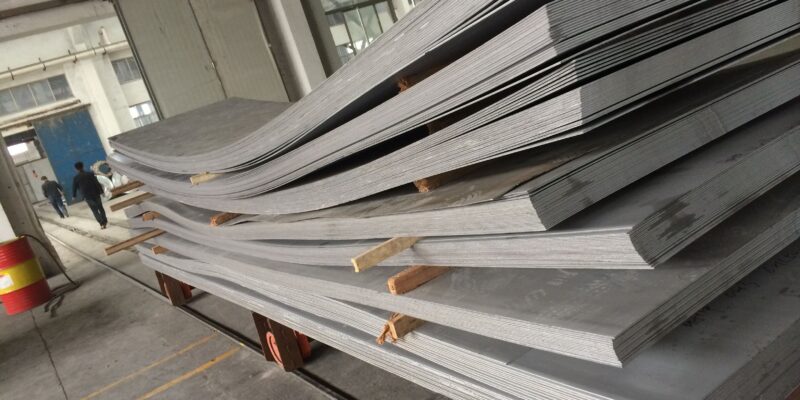
Hastelloy C276 is a high-performance nickel-molybdenum-chromium alloy known for its exceptional resistance to corrosion and versatility across various demanding applications. The robust properties of Hastelloy C276 sheets make them indispensable in numerous industries that require reliable materials capable of withstanding extreme environments. In this article, we explore the diverse uses of Hastelloy C276 sheets, highlighting their importance and functionality in critical sectors.
Chemical Processing Industry
Corrosion Resistance in Aggressive Media
In the chemical processing industry, materials are frequently exposed to highly corrosive environments. Hastelloy C276 sheets excel in such conditions due to their outstanding resistance to a wide range of aggressive chemicals, including strong oxidizers, reducing agents, and acidic media. These sheets are commonly used in the construction of reactors, columns, heat exchangers, and piping systems. The alloy’s ability to withstand harsh chemicals without degrading ensures the longevity and safety of chemical processing equipment.
Mixed Acid Environments
Hastelloy C276’s resistance to mixed acids, including sulfuric acid, hydrochloric acid, and hydrofluoric acid, makes it a preferred material in facilities where these acids are handled. Its robustness helps in maintaining structural integrity and preventing leaks and failures, thereby ensuring continuous and safe operations.
Also read about Jindal Steel Sheet Price
Pharmaceutical Industry
High Purity and Cleanliness
The pharmaceutical industry demands materials that ensure high purity and cleanliness in manufacturing processes. Hastelloy C276 sheets are utilized in the production of pharmaceuticals due to their inert nature and resistance to contamination. These sheets are employed in reactors, mixers, and pipelines where the prevention of cross-contamination is crucial. Additionally, the ease of cleaning and sterilization of Hastelloy C276 components enhances their suitability for pharmaceutical applications.
Oil and Gas Industry
Sour Gas Environments
The oil and gas industry often encounters challenging environments, such as sour gas wells containing hydrogen sulfide (H2S). Hastelloy C276 sheets are particularly effective in these environments due to their resistance to sulfide stress cracking and chloride-induced corrosion. They are used in the construction of pipelines, valves, and offshore platforms, where reliability and safety are paramount.
Deep-Sea Drilling
In deep-sea drilling operations, materials are subjected to high pressures, temperatures, and corrosive seawater. Hastelloy C276’s exceptional mechanical properties and corrosion resistance make it ideal for use in subsea equipment, including wellhead components, control lines, and umbilicals.
Aerospace Industry
High-Temperature Performance
The aerospace industry requires materials that can perform under extreme temperatures and corrosive conditions. Hastelloy C276 sheets are employed in various aerospace components such as exhaust ducts, turbine shrouds, and engine parts. The alloy’s ability to maintain its mechanical properties at elevated temperatures ensures the reliability and efficiency of aerospace systems.
Engine Components
Hastelloy C276 is also used in the manufacture of critical engine components that must withstand thermal cycling and oxidation. Its high creep resistance and fatigue strength contribute to the longevity and performance of aerospace engines.
Environmental Control Systems
Pollution Control Equipment
Environmental regulations necessitate the use of materials that can withstand corrosive gases and chemicals in pollution control systems. Hastelloy C276 sheets are used in scrubbers, flue gas desulfurization units, and waste treatment systems. The alloy’s resilience against sulfur compounds, chlorides, and other pollutants ensures the effective operation and durability of pollution control equipment.
Waste Treatment
In waste treatment facilities, Hastelloy C276 sheets are employed in components exposed to acidic and alkaline waste streams. Their resistance to pitting, crevice corrosion, and stress corrosion cracking helps in maintaining the integrity and functionality of waste treatment systems.
Marine Engineering
Seawater Applications
Marine engineering involves exposure to corrosive seawater, making material selection critical for ensuring long-term performance. Hastelloy C276 sheets are used in various marine applications, including heat exchangers, pumps, and valves. The alloy’s resistance to pitting and crevice corrosion in seawater makes it an excellent choice for components submerged or in contact with marine environments.
Desalination Plants
Desalination plants, which convert seawater into potable water, utilize Hastelloy C276 sheets in their evaporators and heat exchangers. The material’s ability to withstand chloride-induced corrosion and its long service life contribute to the efficiency and reliability of desalination processes.
Nuclear Industry
Radiation-Resistant Components
In the nuclear industry, materials must endure high radiation levels and corrosive conditions. Hastelloy C276 sheets are employed in nuclear reactors, fuel processing, and waste storage applications due to their exceptional corrosion resistance and structural stability under radiation. The alloy ensures the safety and longevity of critical nuclear components.
Reactor Vessels and Piping
Hastelloy C276’s robustness makes it suitable for use in reactor vessels and piping systems within nuclear facilities. Its ability to resist radiation-induced embrittlement and corrosion ensures the integrity and safety of nuclear reactors.
Conclusion
The diverse applications of Hastelloy C276 sheets across various industries underscore their versatility and reliability. From chemical processing and pharmaceuticals to oil and gas, aerospace, environmental control, marine engineering, and nuclear power, Hastelloy C276 sheets provide unparalleled performance in the most demanding environments. Their exceptional corrosion resistance, high-temperature stability, and mechanical strength make them an indispensable material for critical applications where safety, longevity, and efficiency are paramount.










